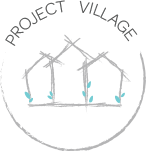It is often heard that a parent is the Chief Executive Officer of the family, the one overseeing all of the important elements of raising kids with courageous leadership. There are the physical, ever-present needs of parenting: ensuring there’s enough toilet paper in the house (not an easy task these days!), cooking healthy meals, making doctor’s appointments, keeping a family budget, dressing our kids in clothes that fit and are appropriate for the weather, paying the rent or mortgage on time, and ensuring the family’s safety (among a million other things). These needs alone are enough to make any CEO’s head spin, and the added, complicated layer of meeting these needs effectively through a pandemic have been especially exhausting.
And then there’s the emotional part of raising kids: the part where we attend to teaching our kids values, faith, relational skills, bravery, passion for learning, and other essential elements of their development. This is where the leadership skills of parents need to become especially well-developed and practically a superpower!
Leadership is NOT one of those skills that’s binary – either there or it’s not. Leadership – particularly as a parent – is a set of skills that can be taught, practiced, messed up, and tried again. According to Dr. Brené Brown – a researcher specializing in the study of vulnerability and leadership – there are four major skill areas for building courageous leadership (which she outlines in the Dare to Lead model). Let’s dig into each of these areas to explore how to be the brave CEO’s for our families that are needed now more than ever:
1- Rumbling with Vulnerability: Vulnerability, according to Brené Brown, is the universal human emotion we experience when faced with uncertainty, risk and emotional exposure. Across the globe, we are all facing mass vulnerability during this Year of COVID, and as a parent this can be particularly frightening and debilitating. Dr. Brown uses the metaphor of the arena – the place in which we face our fears and vulnerabilities. There are so many arenas for parents right now: choosing whether their kids should go back to school, choosing to keep kids home for virtual learning, making job changes, and navigating the daily choices to keep our families safe. The arena is inherently a scary and uncertain place, and as parents we often feel alone. It is essential that we have a cheering section when we are brave enough to go into the arena – the people that we look to for support and encouragement when we are feeling vulnerable. It is also essential that we support our kids when THEY are making the brave choice to go into the arena. For kids this can be all sorts of things as they grow and develop, such as trying new things that scare them, getting out of their comfort zone, and falling flat and failing sometimes. It is our job to pick them up, dust them off, and help them learn from the experience so they can continue to learn and grow. We also have to teach and model “shame resilience” – the ability to manage the inevitable feeling of “Not Enough” that all humans feel at various points throughout their lives. The MOST important job of a parent is to teach their child that they are always worthy of love and belonging, no matter what.
2- Living Into Our Values: As the CEO of your family, you are the daily teacher of your family’s values. Identify and name the values that are most important in YOUR family. These could be harmony, optimism, faith, community, compassion, kindness, simplicity, etc. Our kids see and hear everything that we do, and our values should be evident in how we show up and live our lives everyday. These values can also be a tool for teaching and for redirection, such as helping your kids link their behaviors to your family’s values, using language such as, “Living into our values” or “living outside of our values”. The important point here is that values shouldn’t just be stated words; they should truly be alive through the hard work of everyday actions and behaviors, especially as a parent.
3- BRAVING Trust: Through her research, Brené Brown was able to identify specific elements that help us to build trust with others, and she defines these through the acronym “BRAVING”. When thinking about building trust between parent and child, these elements align beautifully with a strong, healthy attachment relationship. These elements are:
- Boundaries – I have clear boundaries with my children about what is OK and what is not OK.
- Reliability – My kids can rely on me to provide for their basic needs as well as psychological needs.
- Accountability – I hold myself accountable when I make mistakes (because – SPOILER ALERT! – there’s no such thing as a perfect parent….), and I also hold my child accountable when behaviors go awry.
- Vault – I act as a trustworthy vault when my child is vulnerable and shares private information with me.
- Integrity – I live with integrity by acting in alignment with my values. I choose what is right over what is easy.
- Non-Judgment – I can hold supportive space for my child to be themselves, without judgment.
- Generosity – I try to have generous assumptions about my child’s actions and intentions.
The important thing to remember about BRAVING trust as the Family CEO is that imperfections should be expected. Many parents beat themselves up when mistakes are made, but remember that there is always room for growth and learning when damage inevitably happens through the day-to-day reality of family life. Which leads us to the last and perhaps most important part of brave leadership…..
4- The Rising Strong Process: From years of research of how people grow in their resilience and courage after disappointments, failures, mistakes, and heartbreak, Brené Brown identified three steps in what she calls the Rising Strong Process. In thinking about how this applies to parenting, one might think of the hundreds of interactions that occur between parents and children every day. There are so many moments in which a parent can build their skills for managing these challenging moments, while also building their child’s abilities as well. The three steps are:
#1: Reckoning – Recognize when I am hooked by emotion – I’m able to stop and get curious when I’m having an emotional reaction, so that I don’t offload hurt in a shaming and hurtful way towards others.
#2: Rumbling – Examine my “SFD” (Shitty First Draft”) when I’m having a face-down moment in parenting. What is the story I’m telling myself? When I can rumble with my story and get curious about my emotions, I can come away from these hard moments with increased clarity and meaning.
#3: Revolution – I take a look at my SFD to see how it matches up with reality. What’s true in my story? What’s not? What can I learn from this experience?
This process is probably the hardest to do as a parent, but also the most important. It’s taking a breath between a feeling and a reaction, to pause and examine what is going on. As your family’s CEO, you have so many opportunities throughout your day to thoughtfully self-reflect and choose your response in a myriad of parenting moments. Ultimately, you are helping your child learn how to rise strong through life’s hard moments as well.
As a last piece of advice: we are always learning and growing. There is no such thing as a perfect child, AND there is no such thing as a perfect parent. Brené Brown has created a Wholehearted Parenting Manifesto that every parent should have framed somewhere in their house, to remind all of us of the hard work we are doing as CEO every single day.
Be strong, be brave, and remember that we are all in this together.
“I want you to engage with the world from a place of worthiness. You will learn that you are worthy of love, belonging, and joy every time you see me practice self-compassion and embrace my own imperfections.”

